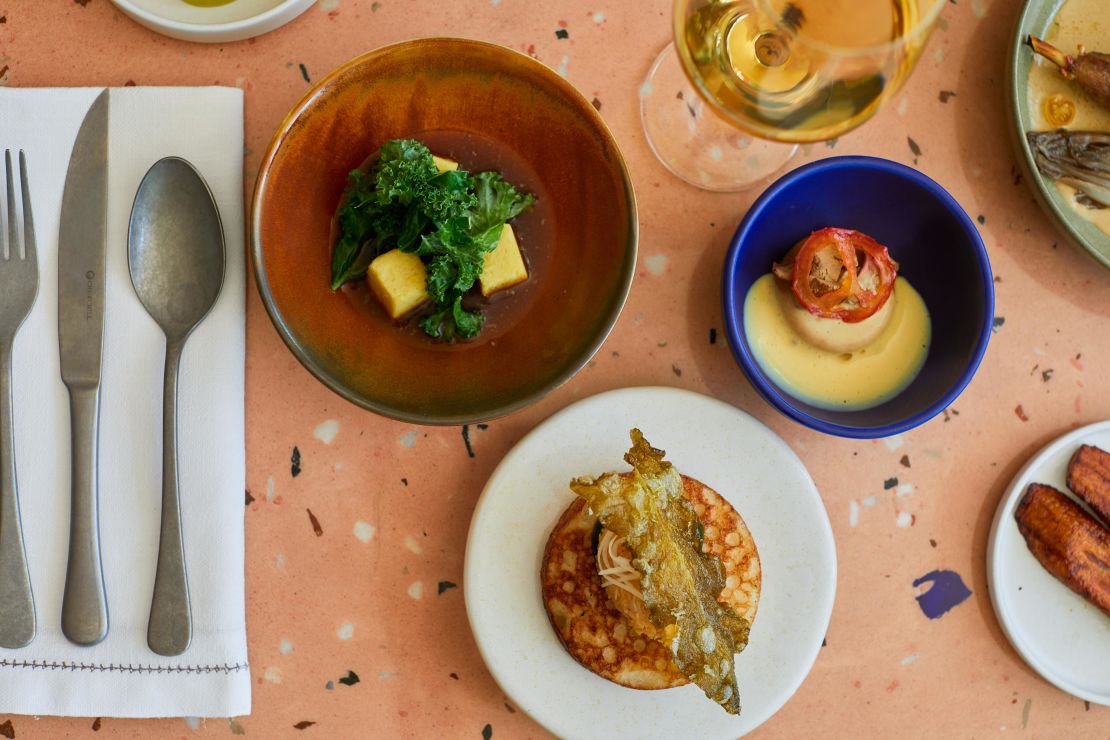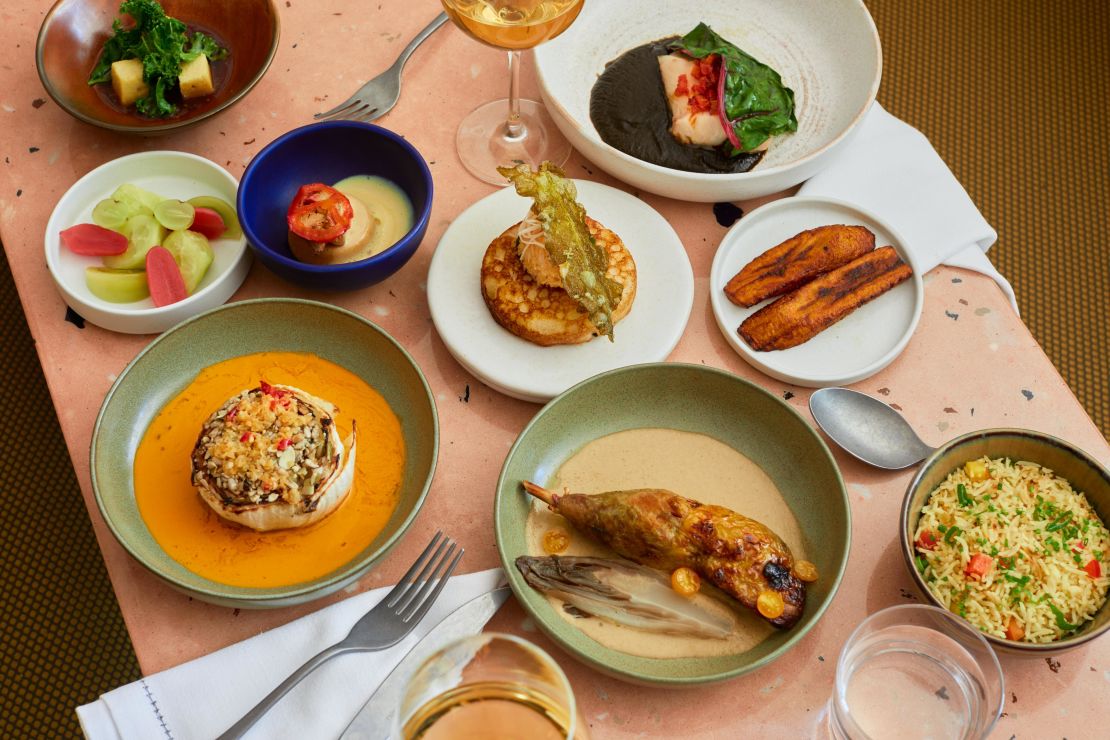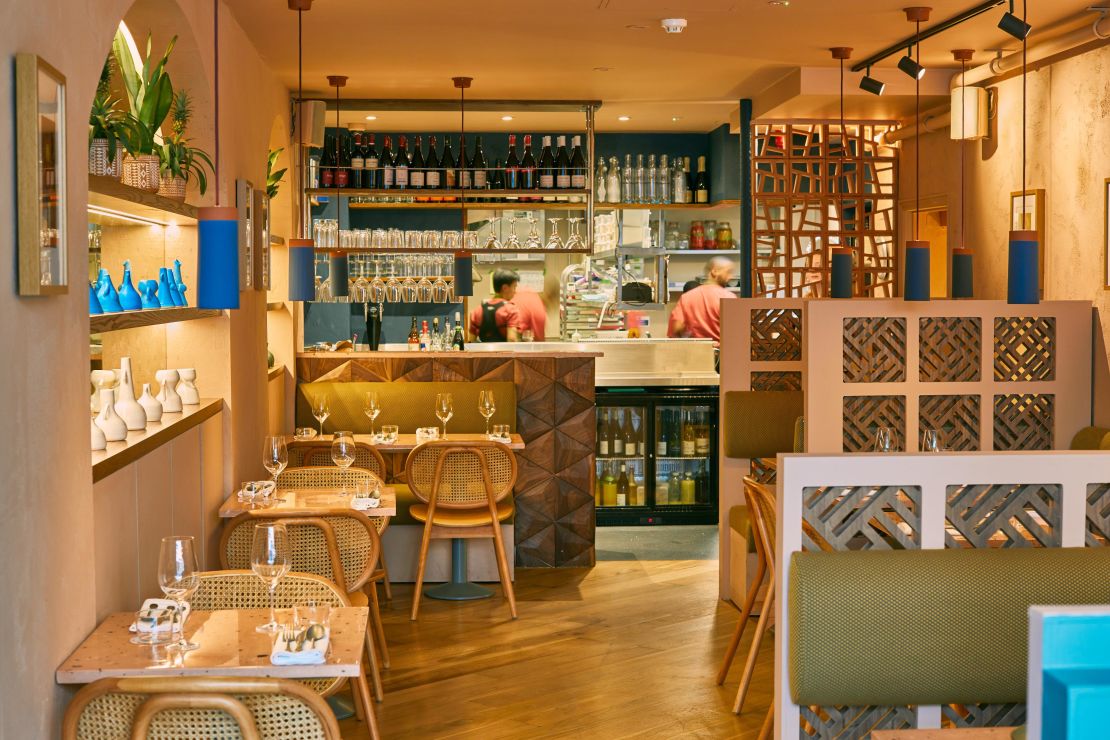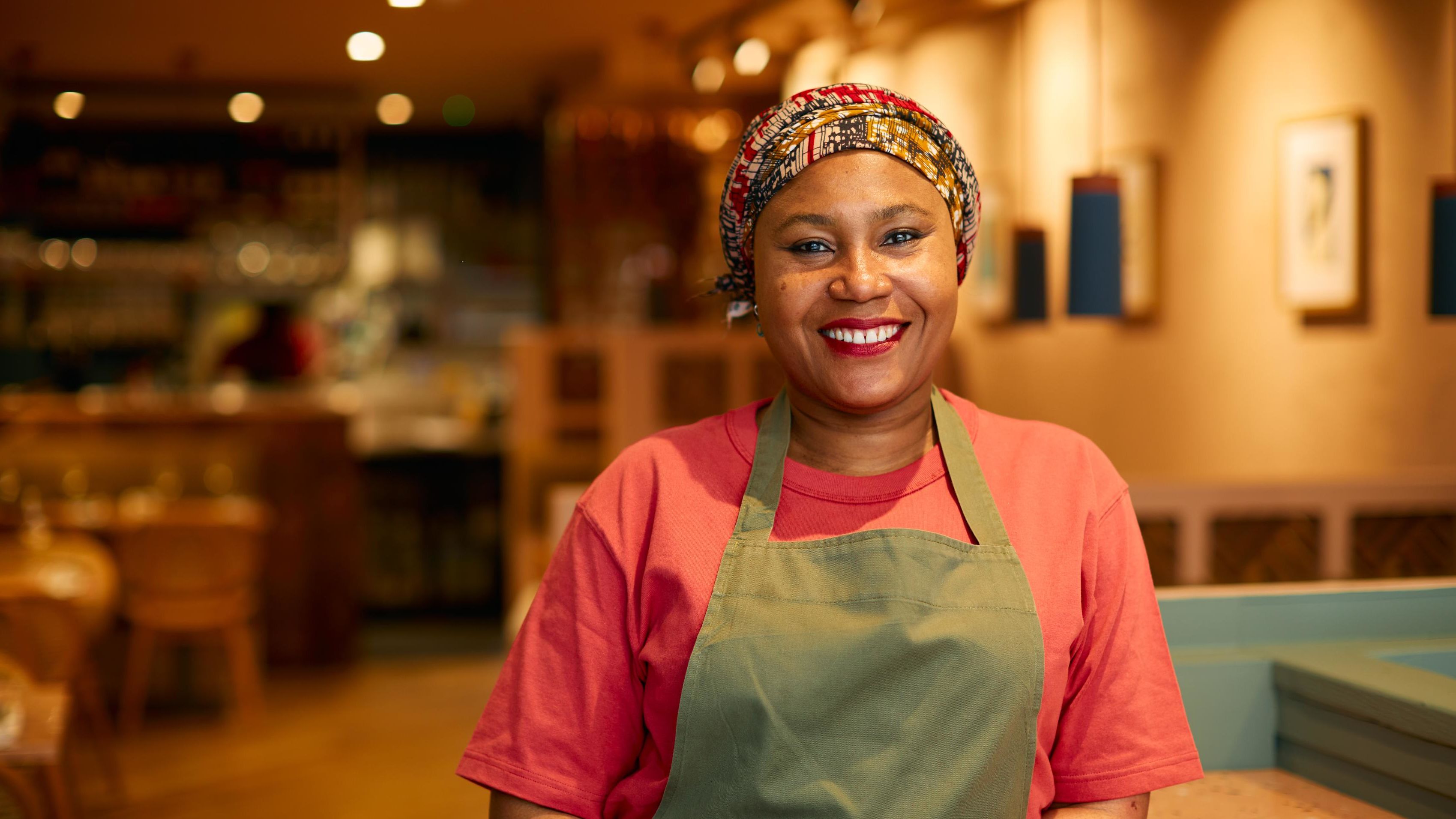Growing up in Nigeria as the oldest sibling, Adejoké “Joké” Bakare was usually the one cooking for the family. When she moved to the UK to study microbiology, around 20 years ago, she took her love for cooking with her. Now, her restaurant Chishuru has been awarded a Michelin star, making Bakare the first Black female chef in the UK to earn the accolade.
The restaurant, which started in 2020 as a temporary popup in Brixton, in South London, has since flourished into one of the city’s best eateries.
In the West African language of Hausa, Chishuru means “the silence that descends on the table when the food arrives,” according to Bakare. “It indicates the love and passion for food and ingredients that is essential to who I am as a chef,” she told CNN.
“I always dreamed of having my own restaurant,” she added. “I always felt that having a Michelin star would be the cherry on the cake, which is why I was so thrilled to be awarded one this week.”

A fusion of flavors
Based in central London, Chishuru offers diners a spectrum of flavors from West Africa based on the food that Bakare knew and loved growing up. Her mother and father are from the Yoruba and Igbo ethnic groups, and the chef grew up in a Hausa region, bringing together culinary influences from each.
“There’s no such thing as ‘Nigerian cuisine,’ it’s a huge country with many different food traditions, almost all of which pre-date the nation states of the region,” Bakare said.
She explained that she’s never looked to create an “authentic” restaurant for West African cuisine, but instead fuse different styles together and create new recipes.
One of Bakare’s favorite dishes is ekuru, a long-time staple on the menu. The watermelon seed cake is topped with pumpkin seed pesto, served with a Scotch bonnet chili sauce.
“It involves ingredients that many customers won’t have tasted before and it doesn’t really look like anyone else’s dish,” explained the chef.
Other dishes at the restaurant include charcoal-grilled guinea fowl breast, called yassa, and a beancake, bone marrow and omelete dish called moi moi.
Recently, her kitchen staff have been trained in animal butchery in order to make best use of the meat they serve. “It’s sustainable and gives us the opportunity to use cuts that you don’t see every day – goat flatiron steak for example,” she said.

“Outgrowing our tiny space”
In the space of just a few years, Chishuru has been on quite the journey. What started as a three-month popup became a permanent fixture after critic Jay Rayner gave the restaurant high acclaim in a review for newspaper The Observer. Then, after TimeOut named Chishuru London’s best restaurant in April 2022, it was apparent things would change.
“It became clear we were outgrowing our tiny space,” said Bakare. But the challenges had just begun. “It was far from easy,” she recalled. “We were flatly turned down by more than one landlord. They just didn’t have the vision to see a West African restaurant in their premises.”
Chishuru found its new home on Great Titchfield Street in the heart of London, and nearby West African restaurant Akoko was also awarded a Michelin star on February 5.

“It’s such a great story,” said a Michelin Guide chief inspector of Chishuru (the identities of Michelin inspectors are kept anonymous). “Her style is unique and the restaurant is a wonderful reflection of her personality and her cooking: it is fun, full of life, generous and hugely enjoyable.”
With Chishuru’s new Michelin-starred status, the next challenge for Bakare is keeping up with the growing interest. “Right now we are just looking to cope with our new increased demand. I want to carry on pushing what we do,” she said.
“What I’m proudest of at Chishuru is being able to cook my food, my way,” Bakare added. “There’s not many chefs around who have that privilege. I feel blessed.”



